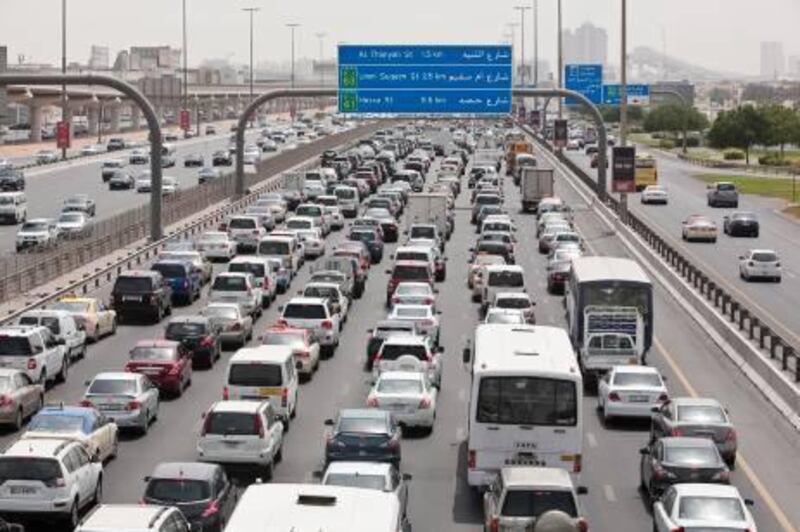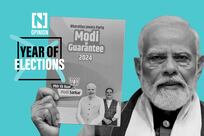DUBAI // When it comes to finding innovative ways to reach their destination, Dubai's drivers are a class apart.
Police issued about 67,000 traffic fines last month - and almost 2,000 of them were for "reckless backwards driving", including reversing down five-lane motorways.
"Many people carrying out such offences seem to be negligent and not concerned with adhering to rules even if it means that they are endangering their own and other people's lives," said Maj Gen Mohammed Saif Al Zaffin, head of the traffic department.
The 67,000 total was accumulated during a traditionally quiet time on the roads. It works out at more than 2,175 offences a day, and more than 90 every hour.
Top offence was speeding, with 20,114 fines. Least common was drink-driving, which recorded "a significant drop" to only 45 fines.
In between there were 5,801 fines for illegal parking, 5,231 for obstructing traffic, 2,847 for using a mobile phone at the wheel, 1,330 for making illegal turns, including U-turns on one-way streets that took the vehicle head-on into oncoming traffic, and 132 for failing to stop at a red light.
The police statistics are supported by drivers’ experiences. Yasmin Toufik, a 26-year-old promotion producer, who commutes from Sharjah to Studio city in Dubai daily, said offences such as driving backwards were common, especially on Emirates Road.
“Many people who miss an exit while driving on Emirates Road reverse backwards to take it,” she said. Other questionable manoeuvres she has spotted include drivers driving in the opposite direction to the traffic after missing their exit.
“It was about two months ago, a man who took the wrong exit decided to drive on a not very busy service road in the opposite direction, just so he could get back to the main road,” she said.
She thinks drivers are often tempted to attempt such manoeuvres because they don’t have the patience to wait for an opportunity to do a legal U-turn. But she doesn’t think she would report anyone for doing so.
“No, I would not report people to police – the fines are very hefty and I would not do it to anyone,” she said.
Khalid Sergani, 26, a programming executive, shared her opinion.
“We do not know the circumstances of these people or why they carried out such acts, they would not have taken the risk and done something so extreme and dangerous unless there was something really pressing,” he said.
Mr Sergani witnessed an accident last week in which a driver jumped a red light and hit another car, which then overturned four times.
The solution for catching such offenders, he said, is to instal more cameras.
But Maj Gen Al Zaffin cautioned that offences such as backwards driving were more challenging to catch, as doing so required extra manpower.
“They are not like speed violations which can be caught with radars – they need to be caught by officers,” he said.
That meant that the true number of such offences may be far higher than the statistics suggest, as so many go unreported.
Maj Gen Al Zaffin said he feared such casual flouting of basic rules of the road appeared to be on the increase and was the main contributing factor to accidents.
He urged the public to report such offences by calling the “We are all police” free hotline, 8004353.
wissa@thenational.ae






